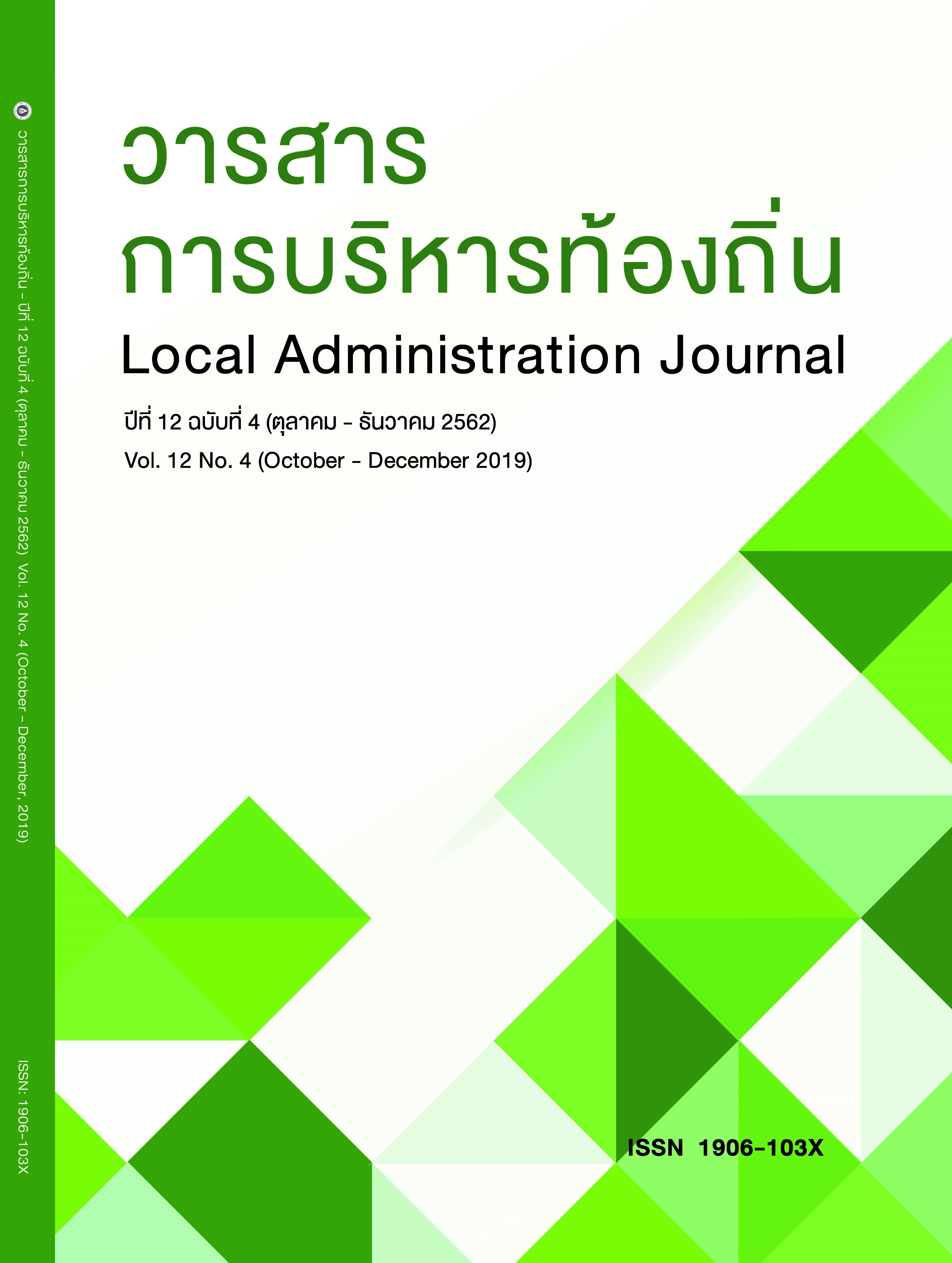An Analysis of the Influence of Decentralization on Levels of Socio-Economic Development
Keywords:
Decentralization, economic development, social developmentAbstract
In theory, decentralization is more responsive to socio-economic needs of citizens in the locality than centralization. The current study aimed to examine the influence of decentralization on socio-economic development. The authors collected secondary data of a purposively-selected sample of 70 countries across the globe. Independent variables were political, fiscal, and administrative decentralization indices. Dependent variables included human development index, education index, health index, income inequality index, foreign direct investment, and GDP per capital. Descriptive statistics and simple regressions were employed.
Descriptive statistics reveal that the sample countries are heterogeneous in terms of decentralization and socio-economic development levels. Findings from regression analysis indicate that each of the three types of decentralization has positive influence on levels of human development, education, healthcare, and living standard. Only administrative decentralization has an inverse relationship with income inequality. The analysis does not find any significant relationship between decentralization and foreign direct investment. The findings imply that decentralization is an effective approach conductive to some aspects of socio-economic development. However, it may not be as effective for the promotion of income equality and foreign investment.
References
Arze del Granado, F., J. Martínez-Vázquez, & R. McNab. 2005. Fiscal Decentralization and the Functional Composition of Public Expenditures. International Studies Program Working Paper 05-01. Atlanta: Andrew Young School of Policy Studies, Georgia State University.
Barankay, I. & B. Lockwood. 2007. Decentralization and the Productive Efficiency of Government: Evidence from Swiss Cantons. Journal of Public Economics, 91(5–6). 1197–1218.
Bardhan, P. & D. Mookherjee. 1998. Expenditure Decentralization and the Delivery of Public Services in Developing Countries. Institute for Economic Development Paper No. 90. Boston: Institute for Economic Development, Boston University.
Bergh, A. & Henrekson, M. (2011). Government Size and Growth: A Survey and Interpretation of the Evidence. Research Institute of Industrial Economics. [n.p]
Faguet, J. 2004. Does Decentralization Increase Government Responsiveness to Local Needs?: Evidence from Bolivia. Journal of Public Economics, 88(3–4), 867–893.
Faguet, J. & Sánchez. F. (2006). Decentralization and Access to Social Services in Colombia. Center for Latin American Studies Working Paper Series. Berkeley, CA: University of California.
Gruber, J. (2011). Public Finance and Public Policy (3rd ed.). New York, NY: Worth Publishers.
Habibi, N., et al. (2003). Decentralization and Human Development in Argentina. Journal of Human Development and Capabilities, 4(1), 73–101.
Ivanyna, M., & Shah, A. (2014). How Close Is Your Government to Its People? Worldwide Indicators on Localization and Decentralization. Economics: The Open-Access, Open-Assessment E-Journal, 8(2014-3), 1–61.
Khemani, S. (2001). Fiscal Federalism and Service Delivery in Nigeria: The Role of States and Local Governments. Fiscal Fed Report. World Bank.
King, E. & B. Özler. (1998). What’s Decentralization Got to Do with Learning? The Case of Nicaragua’s School Autonomy Reform. Development Research Group Working Paper Series on Impact Evaluation of Education Reforms. No. 9. Washington, DC: World Bank.
Lowatcharin, G., & Stallmann, J. I. (2017). Developing a cross-national index of police decentralization. Social Science Asia, 3(4), 29-53.
Lowatcharin, G., & Stallmann, J. I. (2018). The differential effects of decentralization on police intensity: A cross-national comparison. The Social Science Journal, 3(4), 29 – 54.
Maksym Ivanyna & Anwar Shah. (2014). How Close Is Your Government to Its People? Worldwide Indicators on Localization and Decentralization. Economics: The Open-Access. Open-Assessment E-Journal, 8(2014-3), 1-61.
Oates, W. (1972). Fiscal Federalism. New York: Harcourt Brace Jovanovich.
OECD/UCLG. (2016). Subnational governments around the world: Structure and finance. Retrieved from http://www.oecd.org/regional/regional-policy/Subnational-Governments-Around-the-World-%20Part-I.pdf
Peña, S. (2007). Evaluation of the Effects of Decentralization on Educational Outcomes in Spain. Working Papers in Economics. No. 228. Barcelona: Espai de Recerca en Economia, Universitat de Barcelona.
Prud’homme, R. (1995). The Dangers of Decentralization. vol. 10, no 2. The World Bank Observer.
Qibthiyyah, R. (2008). Essays on Political and Fiscal Decentralization. Atlanta: Georgia State University.
Robalino, D., O. Picazo, & Voetberg, A. (2001). Does Fiscal Decentralization Improve Health Outcomes? Evidence from a Cross-Country Analysis. Policy Research Working Paper Series. No. 2565. Washington, DC: World Bank.
Santos, B. (2005). Democratizar a Democracia. Os Caminhos da Democracia Participativa. Rio de Janeiro: Civilização Brasileira. Retrieved from http://www.4shared.com/document/ Zh7aTB_Z/SANTOS_ Boaventura_de_S__org__D.html
Simatupang, R. (2009). Evaluation of Decentralization Outcomes in Indonesia: Analysis of Health and Education Sectors. Atlanta: Department of Economics, Georgia State University.
Solé-Ollé, A. & A. Esteller-Moré. (2005). Decentralization Provision of Public Inputs, Government Responsiveness to Local Needs, and Regional Growth: Evidence from Spain. Institutd’Economia de Barcelona Working Paper. Barcelona: Institutd’ Economia de Barcelona.
Tiebout, C. (1956). A Pure Theory of Local Expenditures. Journal of Political Economy, 64(5),
416-424.
Uchimura, H. (2012). Fiscal Decentralization and Development: Experiences of Three Developing Countries in Southeast Asia. New York: Palgrave Macmillan.
World Bank. (1994). World Development Report 1994: infrastructure for Development. Washington, DC.
Additional Files
Published
How to Cite
Issue
Section
License
The copyright of all articles published in the Local Administration Journalis owned by the College of Local Administration, Khon Kaen University.



